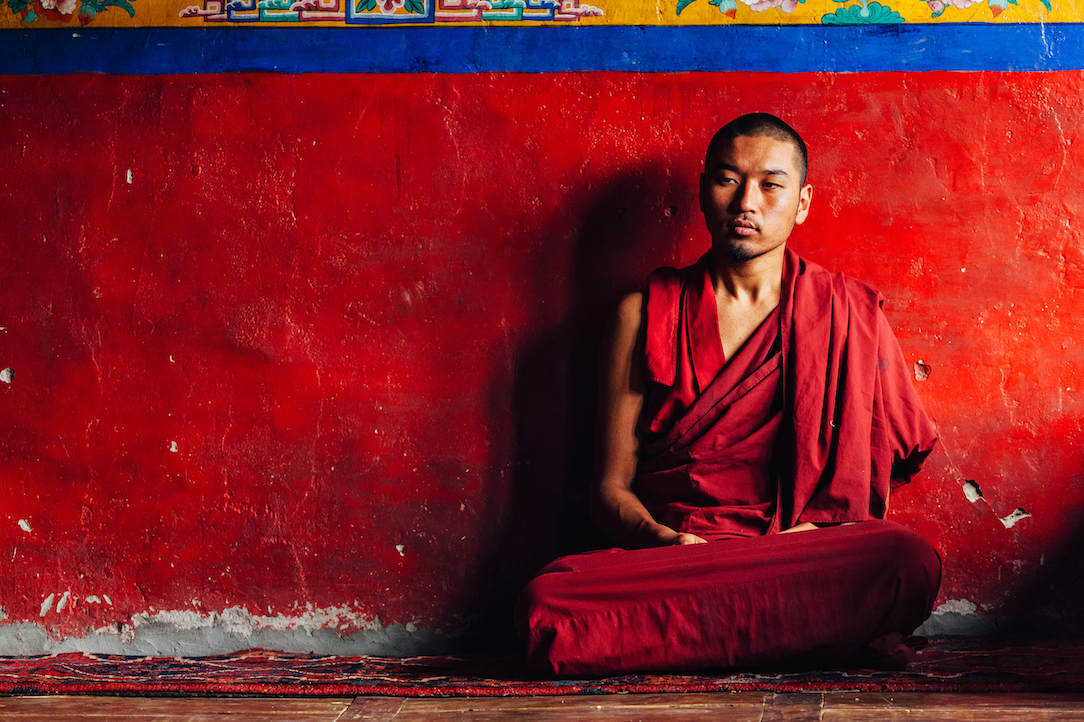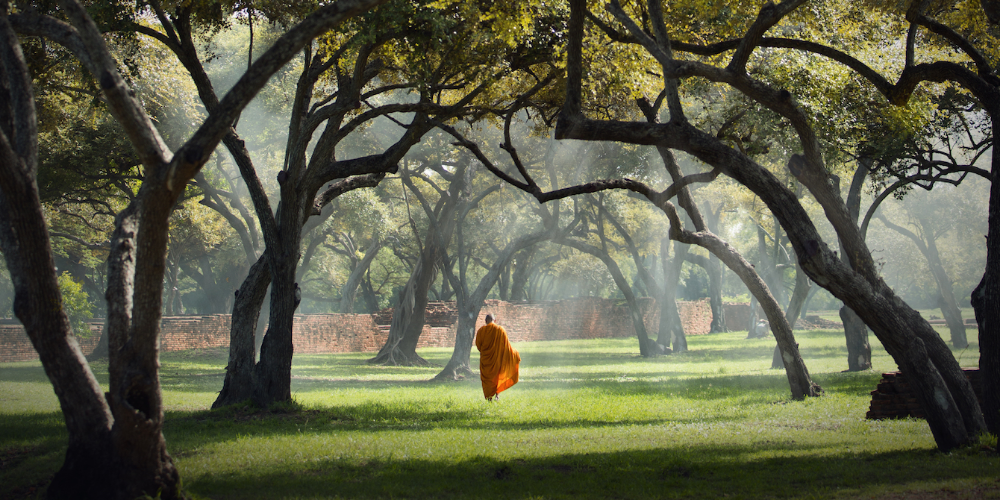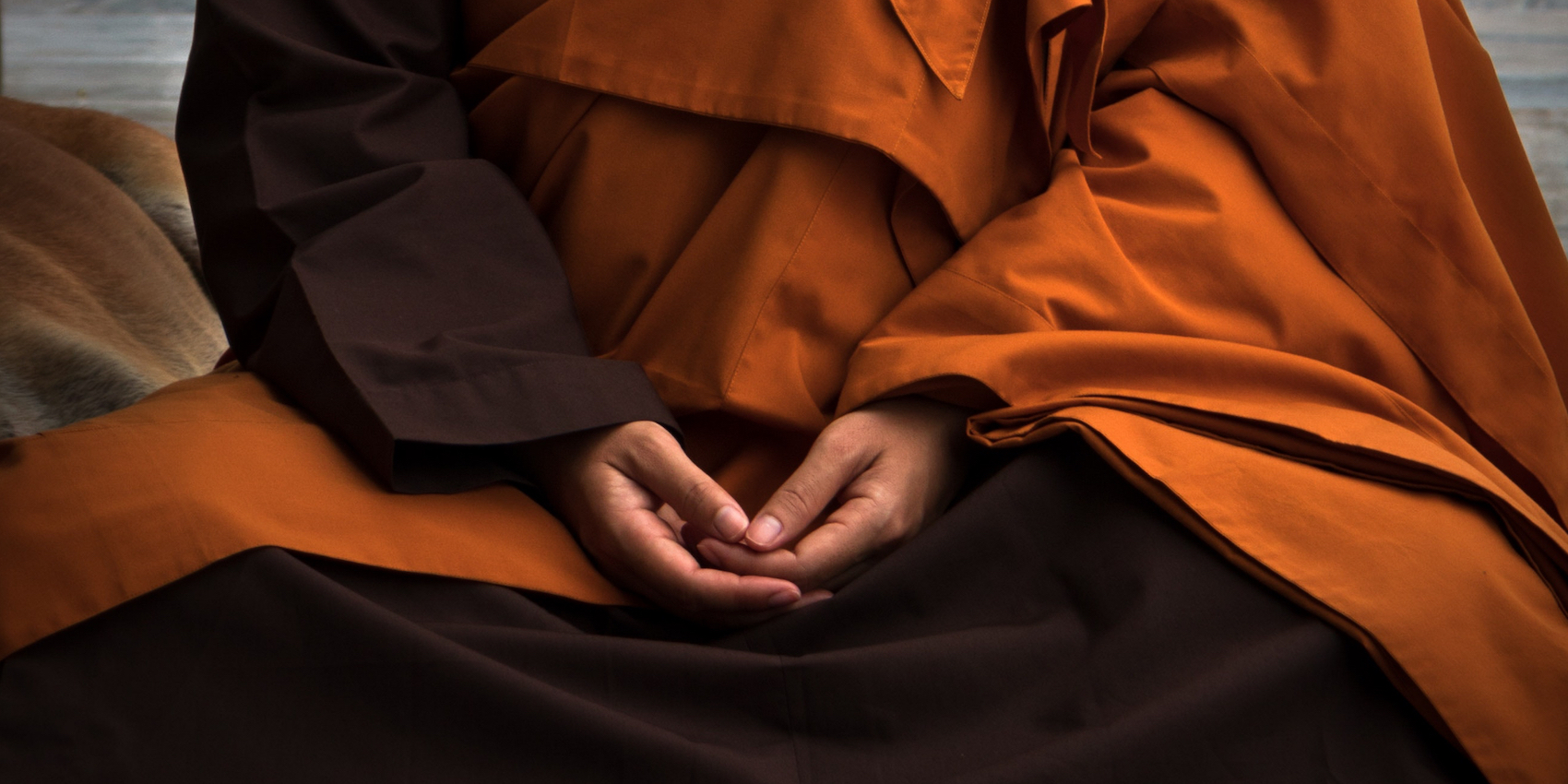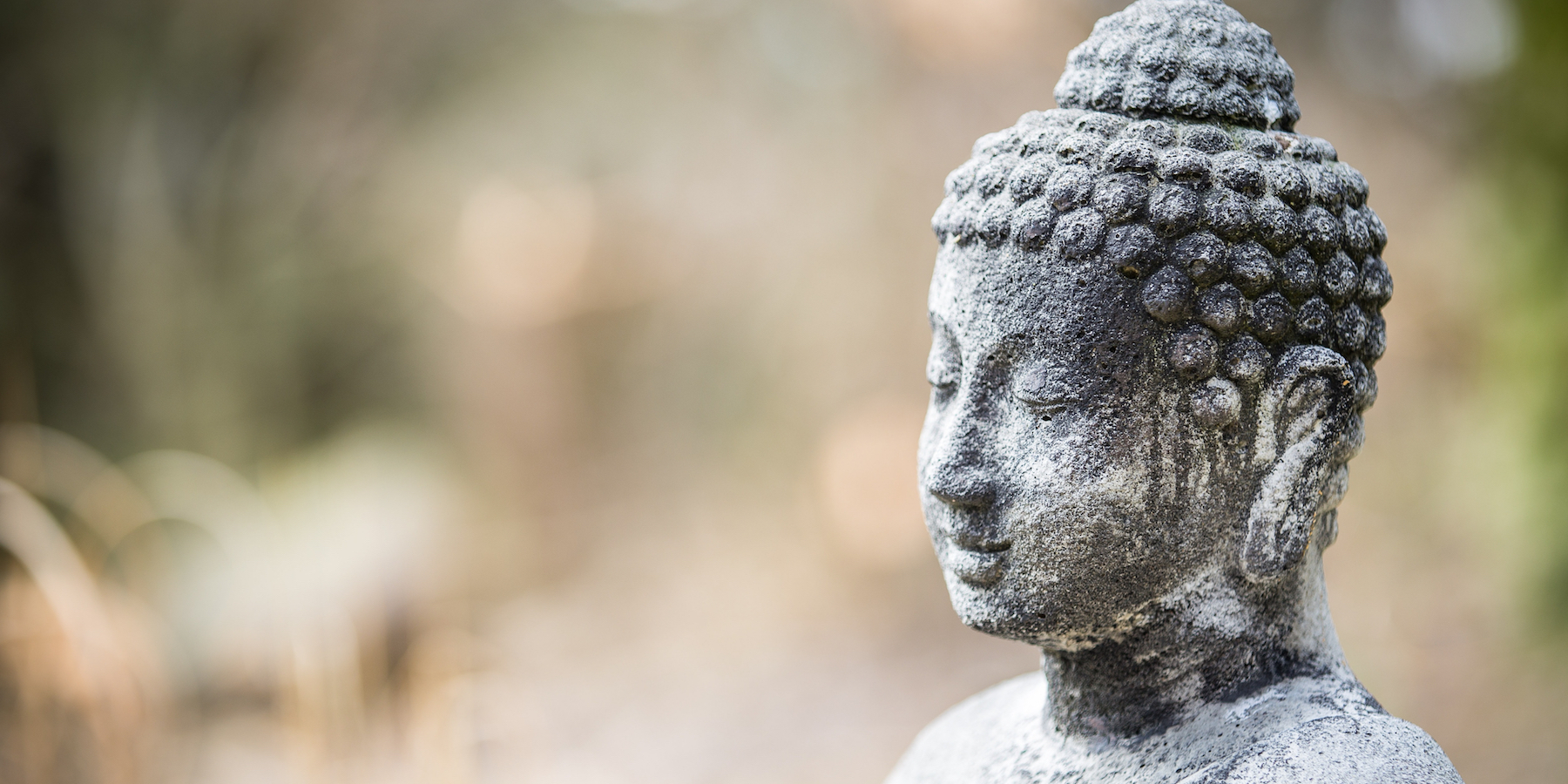Buddhist teacher Scott Tusa reflects on the interconnecting and compassion arising effects of an open question and how it can be inquired. A guided practice opens a healing space for embodied self-inquiry.
The Joyful Art Of An Open Question
Lately, I have been experimenting with asking more open-ended questions.
When a difficult emotion arises I leave room to get to know it. When a challenging conversation happens I ask myself where the other person might be coming from. And when judgment arises towards myself or another I especially like to open up an inquiry into whether that judgment is completely true or not.
This is not an easy process, as it requires us to suspend our belief(s) for the moment to acknowledge that there may be a different way to perceive what we are experiencing. It can feel abrasive and uncomfortable at first, but over time a deep joy can arise as we begin to warm up to the open dimensionality that is at the core of our existence.
From The Jewish Ritual Of Asking Four Questions To Mindful Self-Awareness and Inquiry In Buddhism
Growing up Jewish, I have vivid childhood memories of the Jewish holidays throughout the year. Apples and honey at New Year’s. Costumes and cookies with delicious filling at Purim. Chocolate money and eight days of presents at Hanukkah (I’m sure you are starting to see a pattern here). When I reflect, it seems that as long as there was delicious food, I was okay with whatever boring activities surrounded it.
Passover was a different story. Not only did it include no food, ie. fasting, but when dinner was finally served, it involved eating unleavened bread, salt water, bitter herbs, and a host of other foods and activities I was not so thrilled about as a kid. Despite this, there is one part of the Passover dinner that has always stuck with me – the ritual of asking four questions.
On Passover, four questions are asked by the children at dinner. These questions represent the very joy and freedom, both literal and metaphysical in our ability to ask an open question itself. It wasn’t until later on in my life, when I met Buddhism, that I began to understand the power and love in this.
Practice with Scott and dive into this short guided meditation on finding calmness in the body.
How Asking Open Questions Gives Freedom
On the Buddhist path of practice, we strive to ask deeply personal questions. We practice mindful self-awareness in a way that asks whether our actions of body and speech are useful and compassionate.
When we reflect on and question our personal beliefs we are open to them changing based on new evidence. Ultimately, we may even ask whether the perceptions we are currently identified with have an absolute and unchanging reality in and of themselves.
Within an open question, we choose to suspend judgment and instead enter a process of spacious inquiry. Here inquiry can be either analytical or intuitive. It can function as an informed contemplative process we follow, or intuition or feeling we watch. I’ve found that there are so many ways to sit with an open question.
Here, the power lies not within the answer, but within the very process of churning over the question again and again. Because the need to be right or affirmed has been loosened, there is the possibility of eventually finding freedom (from clinging) within it.
Guided Embodied Self-Inquiry Practice
Of course, we can benefit from applying the process of churning an open question in relation to anything in our life, but I find it particularly useful to sit with a feeling or sensation in the body. Here we choose to meet whatever is arising with compassion, simply “listening” to it without judgment. If done with care this can be very soothing, allowing for a process to unfold that is both healing and loving.
Although the application of this can look slightly different for each person or issue, here’s an example of a short embodied inquiry practice that I like to apply:
- Find a quiet place to sit and take a moment to find a relaxed yet alert posture.
- Scan gently through the body starting at the crown of your head and ending at the tip of your toes.
- As you connect with each part of the body, attempt to meet each part as it is.
- Once you’ve arrived at your feet, spend a moment connecting with the floor beneath you. If you can, arouse a sense of warmth towards yourself and others, remembering that we are practicing to re-connect to and awaken a heart of unconditional love.
- Start the inquiry practice by listening to a part of the body that might feel especially constricted or tense at the moment.
- Remember that you can come out of the practice whenever it gets too overwhelming.
- Now without triggering too much discursive thought, notice what arises for you around this tension.
- What does it feel like? What textures does it have? What kinds of sensations are arising in and around it?
- Take a few minutes in between each question to pause and stay present and connected with the body and what may be arising.
- After 5-10 minutes gently come out of the embodied inquiry practice, writing down any insights or shifts that you experienced from the practice.
This practice and others like it allow us to enter into new and embodied spaces of inquiry. A lot of wonderful healing can take place in these sessions. When applied throughout our life, they also allow a sense of wonder and compassion to unfold as we learn to bear witness in new and beneficial ways.
Along with the benefit we receive from living with more open questions, we also carry the potential for that benefit to positively affect our relationships and communities. From deeper inquiries, we can develop more compassionate solutions to challenging issues we face.
For me, this echoes the care symbolized in traditions like the Four Questions. Since many of us did not have access to healthy rites of passage growing up, we may need to reclaim them in our bodies as we learn to re-parent the parts of ourselves that are in deep need of loving care. From here we can learn to act more from interconnection and less from division.
This reflection on asking open questions was first published on the author’s blog but extended for Insight Timer Blog. Follow Scott Tusa and his guided meditations on Insight Timer.







